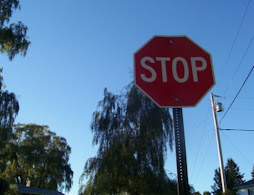So is this woman what Stephanopoulos and others have suggested, a nuisance? Or is she on the right track - asking the candidates tough questions no matter what they are. A precedent has been set in our society that public figures such as the former mayor of
In the article from the Union Leader Prudhomme-O'Brien defends her question.
"I was simply asking a question that people were thinking anyway. When did that become wrong?"[She] said the home lives of presidential hopefuls are relevant. If someone has trouble at home, she reasons, his professional work suffers.
Her response in the article really resonated with me. In fact, it reminds me of a book I am reading by Fred Greenstein. In the book The Presidential Difference, he evaluates former presidents on a number of different criteria including "emotional intelligence." Greenstein describes this as the "president's ability to manage his emotions..." It makes sense to me that a man - or woman now - who is campaigning to become the CEO of our country should be evaluated and questioned on all levels as Greenstein points out; there are many less obvious factors that make a difference in a presidency. So was this woman a trouble maker going too far? Or was she simply a citizen exercising her right to speak her mind?


